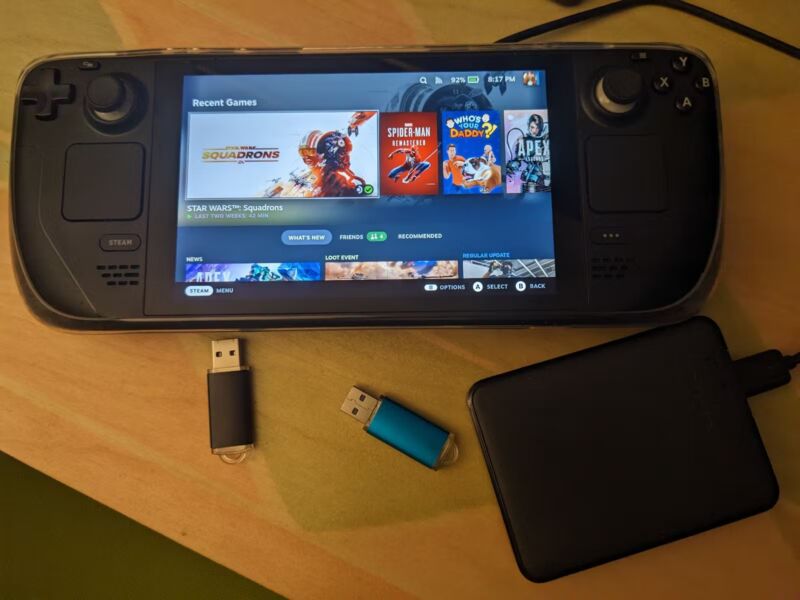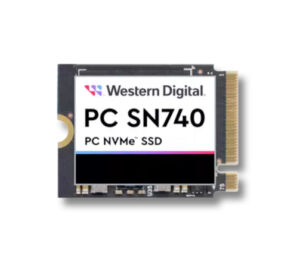
Steam Deck and Microsoft Surface owners looking to get more SSD storage than is typically offered (and for less money) have a new, unexpected source: Framework, the repairable laptop company.
Seeing the need for reputable vendors of smaller-size M.2 drives, the company decided to “add one more line item” to its typical Western Digital drive order. As such, the company has started offering a 2TB M.2 2230 drive for $300 in its US and Canada stores. As of this writing, the drives are sold out, but you can sign up to be notified when they’re back in stock.

Framework founder and CEO Nirav Patel describes the move as “an interesting opportunity to enable upgrades on another popular consumer electronics product: the Steam Deck.” Patel notes that “it can be difficult to find legitimate sources for larger capacity drives,” like the 2TB SN740 2230 models from Western Digital that Framework will offer. Patel links iFixit’s guides to upgrading the Steam Deck and Surface devices and asks Framework fans to let the company know about other ways to “help you with hard-to-find upgrades for other products.” We’ll presume “retail-price GPUS” isn’t worth mentioning.
As we noted in an article about the widening availability of teensy SSD drives, these drives aren’t cheap, but they still provide large savings over the big OEM vendors’ prices.
Upgrading the Surface Laptop Go 2 from a 128GB SSD to 256GB costs between $50 and $100 if you buy from Microsoft or another retailer, and higher-capacity drives aren’t available. Microsoft will charge $300 to upgrade the Surface Pro 9 from a 256GB SSD to 512GB and $600 to upgrade from 256GB to 1TB. The Steam Deck’s various price tiers come with other non-storage-related benefits, but going from the base model’s 64GB of slow eMMC storage to a 256GB SSD still costs at least $130.
Buying from a name like Western Digital via Framework is also likely to be a better bet than purchasing from lesser-known vendors on eBay or other marketplaces. While these drives are not Framework-labeled and thus don’t have the company’s one-year warranty, there is still a 30-day return policy and a wider number of support options. Framework’s warranty language suggests that actual malfunction or failure response would be handled by Western Digital.
https://arstechnica.com/?p=1916747

